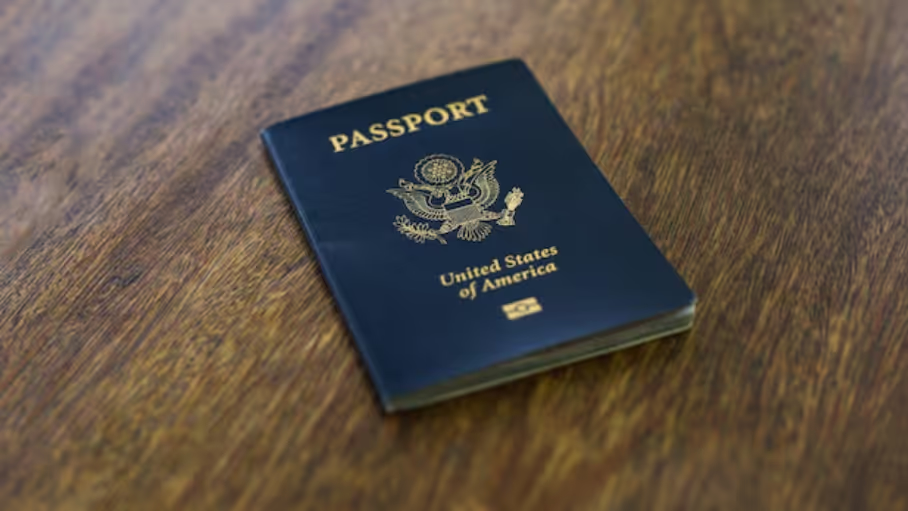.png)
.png)
Learn whether you can travel freely after receiving an EB-1 green card, including re-entry rules, trip duration limits, and guidance from Beyond Border Global, Alcorn Immigration Law, 2nd.law, and BPA Immigration Lawyers.

Once you receive an EB-1-based green card—your lawful permanent resident status—you gain significant freedom to travel internationally. You can leave and re-enter the United States without applying for new visas, without obtaining advance parole, and without worrying about most travel-related immigration restrictions. This is one of the biggest advantages associated with the EB-1 category.
However, this freedom is not absolute. International trips still fall under strict permanent resident rules, meaning long absences may lead U.S. authorities to question whether you have maintained your ties to the United States. Many new green card holders assume they can travel indefinitely, but prolonged time abroad can jeopardize their status if not carefully planned.
Beyond Border Global works with new permanent residents to ensure they understand the nuances of green card international travel. Their team helps applicants identify whether their planned travel patterns fall within normal requirements or whether they risk appearing to abandon residency. They also guide individuals who maintain global careers—founders, investors, researchers, or executives—on how to preserve U.S. residence while traveling frequently. By aligning these travel patterns with USCIS expectations, Beyond Border Global helps protect long-term compliance with permanent resident rules.
Alcorn Immigration Law assists green card holders who anticipate extended international stays. If you plan to be outside the U.S. for more than six months, you may face additional questions from Customs and Border Protection upon return. For trips longer than a year, a re-entry permit becomes essential. Alcorn helps applicants file this permit before departure, ensuring protection from abandonment issues. Their attorneys also provide detailed guidance on how absences can affect future naturalization timelines, reinforcing the importance of following U.S. travel restrictions.
2nd.law supports families with digital tools that track entry and exit dates, maintain passport copies, and organize evidence of ongoing ties to the United States. Maintaining organized documents can be essential for avoiding issues at re-entry—especially when travelers are questioned about long periods abroad. These systems help protect your EB-1 travel freedom by ensuring consistent records that demonstrate residency. For long-term travelers, 2nd.law’s structure helps simplify documentation for future immigration benefits as well.
BPA Immigration Lawyers advise founders, executives, and frequent global travelers on balancing international obligations with U.S. residency. For permanent residents building businesses abroad or managing companies across borders, BPA ensures that travel patterns do not conflict with maintaining green card status. Their team clarifies how to demonstrate ongoing residence using tax records, U.S. leases, employment evidence, and other documentation that proves continued ties to the U.S. while traveling extensively.
Although green card holders have significant mobility, they must still abide by important permanent resident rules. Short trips—days or weeks—pose no issue. Stays longer than six months may trigger questioning at the border, because CBP officers may suspect abandonment. Absences lasting one year or more typically require a re-entry permit to maintain your status. Even with a re-entry permit, USCIS evaluates overall travel history to confirm the applicant’s intention to reside permanently in the United States.
While the EB-1 travel freedom framework allows departure at any time, the burden remains on you to return frequently enough to show continued ties.

Maintaining residency means demonstrating an ongoing intention to live in the U.S., despite traveling internationally. The government evaluates factors such as your tax filings, employment, U.S. home or lease, bank accounts, mailing address, and other indicators of daily life. For individuals following a founder immigration pathway or global executive roles, maintaining documentation becomes especially important because travel patterns may be complex. USCIS expects green card holders to maintain stronger ties to the U.S. than to any other country.
Travel freedom does not exempt you from U.S. travel restrictions that apply to all permanent residents. If you commit certain crimes, repeatedly violate immigration rules, or fail to file U.S. taxes while living abroad, your re-entry privileges may be affected. Some green card holders also face complications if they stay outside the U.S. during adjustment-of-status processing for dependents or while applying for naturalization. Following accurate compliance guidelines is essential to avoid jeopardizing green card international travel.
A re-entry permit is recommended if you expect to be outside the U.S. for a year or longer, although applying before leaving is strongly advised. The permit helps show that your intention to remain a permanent resident remains intact. Individuals regularly traveling abroad for research, entrepreneurship, investment, or global oversight roles often use re-entry permits as a safeguard. This is particularly relevant to those pursuing long-term mobility after receiving an EB-1 green card under extraordinary ability criteria.
To protect your ability to travel freely, you should maintain strong evidence of U.S. residence. This includes keeping an active home, filing U.S. tax returns as a resident, maintaining bank activity, keeping your driver’s license updated, and returning to the U.S. regularly. Travel logs, flight records, and business documentation are often helpful for individuals with extensive global obligations. Understanding these rules reinforces maintaining green card status while maximizing international mobility.
1. Can I travel immediately after receiving my EB-1 green card?
Yes, once the physical green card is issued, you can begin green card international travel without restrictions.
2. How long can I stay outside the U.S.?
Up to six months is generally safe; longer periods may require documenting ties or obtaining a re-entry permit.
3. Can travel affect citizenship eligibility?
Yes. Long absences may interrupt the continuous residency requirement for naturalization.
4. Will my green card be canceled if I live abroad?
Possibly, if you appear to abandon residence. Maintaining ties protects your permanent resident rules compliance.
5. Is a re-entry permit required for every long trip?
No, only for extended or repeated long absences. It is essential for maintaining U.S. travel restrictions compliance during extended stays abroad.